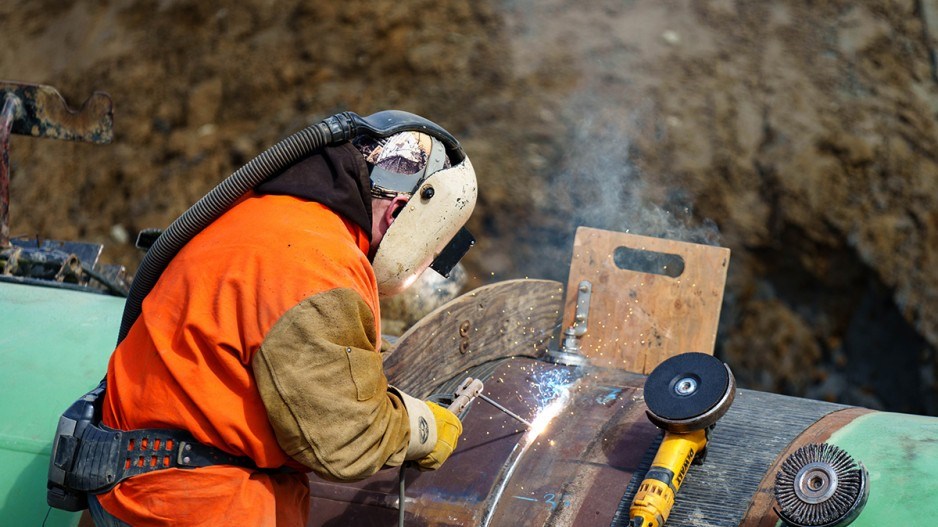Two of eight sections of the 670-kilometre long Coastal GasLink natural gas pipeline are built, and the project overall is reaching the 65% completion mark, according to a project update.
But just how far behind schedule, how much over budget the project will be, and who will cover the cost overrun remains unclear. TC Energy Corp. (TSX:TRP) and LNG Canada are still wrangling over the question of who should cover the additional costs.
“As Coastal Gaslink now heads into spring breakup, we are nearing 65 per cent overall completion and seeing major milestones across the entire project route,” CGL says in a project update.
Two of eight spreads, or sections, are 100% complete, the company reports: Section 1, west of Dawson Creek, and section 4 north of Prince George. In total, 275 kilometres of pipe has now been laid.
As part of its update, CGL announced that O.J. Pipelines, one of the project’s contractors, has partnered with three local First Nations development corporations to build Section 7.
The three First Nations corporations are Natanlii Development Corp. (Skin Tyee Nation), Yinka Dene Economic Development Limited Partnership (Wet’suwet’en First Nation) and Kyah Development Corp. (Witset First Nation)
All three communities are part of the Wet’suwet’en First Nation. All elected band councils within the Wet’suwet’en First Nation support the pipeline project and have benefits agreements with CGL and the provincial government.
A number of Wet’suwet’en hereditary chiefs oppose the project, however, which has been subject to a series of blockades and acts of vandalism and harassment by protestors that have delayed progress on one section of the pipeline in the Morice River Road area near Houston.
In February, a CGL work camp was attacked by an estimated 20 masked, ax-wielding assailants, who menaced workers and caused millions of dollars in damage when they commandeered heavy equipment and used it to wreck equipment, vehicles and trailers. No arrests have been made yet.
The numerous road and bridge blockades set up by protesters forced CGL to seek court injunctions. The protests were concentrated along section 7, south of Houston.
As a result, that is the only section of the pipeline project that has had no pipe laid, although CGL reports that 96% of the pipeline corridor has been cleared. In all other sections, 30% to 60% of the pipe is laid, except for sections 1 and 4, where 100% of the pipe is now in the ground.
TC Energy, which is building the pipeline for LNG Canada, has warned that it expects the project will be “significantly” over budget and delayed in its completion. The project was budgeted to have a capital cost of $6.6 billion. TC Energy has warned it will cost significantly more than that.
“Coastal GasLink is in dispute with LNG Canada with respect to the recognition of certain costs and the impacts on schedule; however, the parties are in active and constructive discussions toward a resolution of this matter,” TC Energy says in its recent first quarter financials. "We do not expect any suspension of construction activities due to the dispute while discussions continue.
“The ultimate level of debt financing and the amounts to be contributed as equity by Coastal GasLink LP partners, including us, will be determined by the substance of a resolution with LNG Canada.”
Coastal GasLink LP Partners is a consortium of 16 First Nations along the pipeline route that are taking a 10% equity stake in the pipeline.



